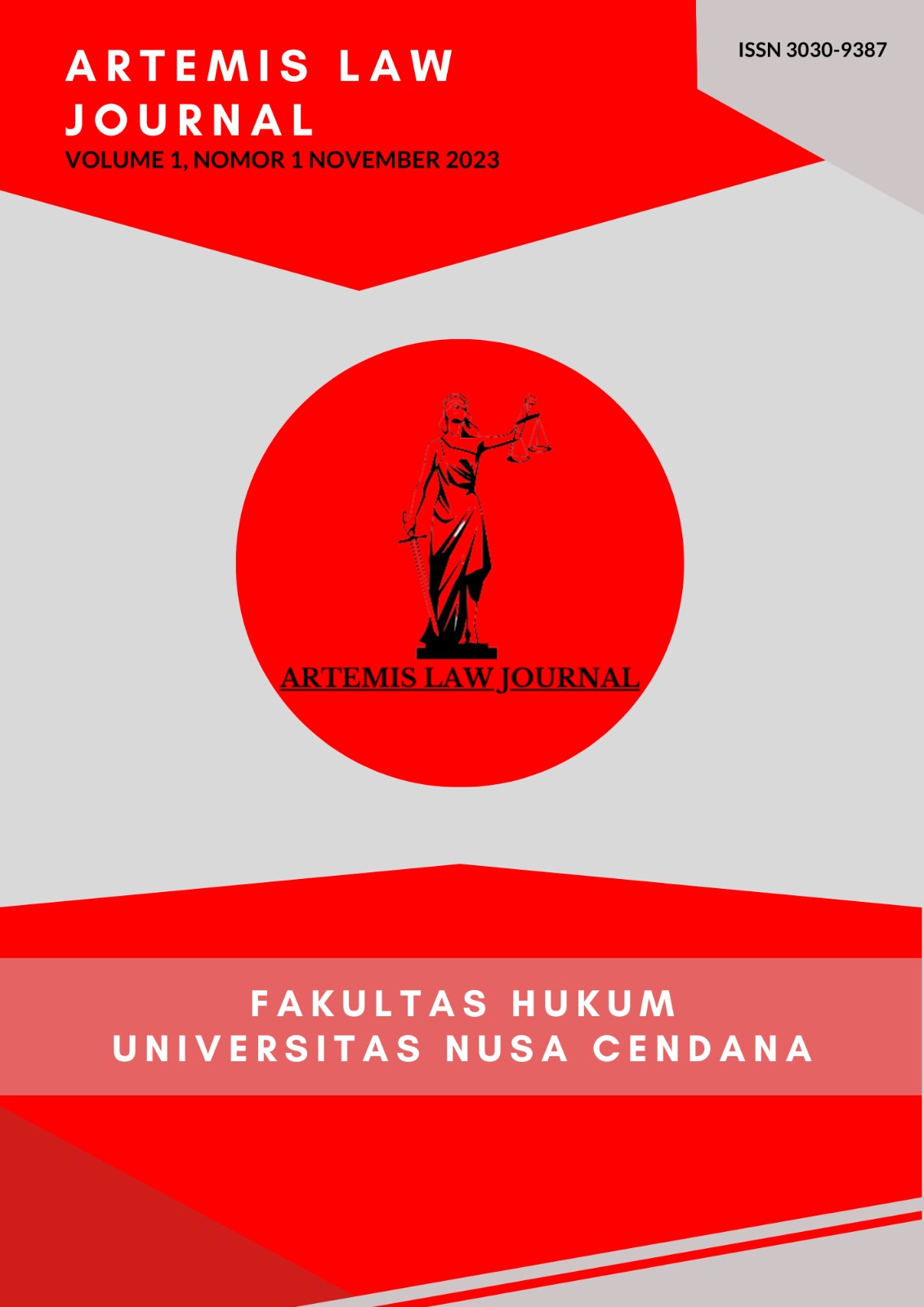Kedudukan Tokoh Adat Mosalaki Dalam Penyelesaian Perkawinan paru ndu (lari ikut) Pada Masyarakat Lio Mego Di Desa Koro Bhera Kecamatan Mego Kabupaten Sikka
Main Article Content
Abstract
This research is motivated by the findings of researchers in Koro Bhera Village that there is still a lot of practice of Paru ndu or running along with young couples who want to get married, but do not get the blessing of the woman's family due to several factors and choose to marry in the Paru ndu or running way. follow. The aim of this research is to find out the factors that cause Paru ndu (running along) marriages, what is the role of Mosalaki in the process of resolving Paru ndu marriages, and what are the legal consequences of carrying out Paru ndu (running along) marriages. The method used in this research is qualitative research, while using an empirical juridical approach. The data collection techniques used were interviews, observation and documentation. The theory used to analyze is the definition of the traditional figure Mosalaki Lio Mego, the definition of marriage according to Law No. 1 of 1974, marriage according to customary law, lung ndu marriage (running along). Based on the results of research conducted by researchers, there are several factors that cause people to do Paru ndu (running along), namely, the factor of not getting parental approval, the financing factor, and the pregnancy factor. The position of Mosalaki Traditional Leader Lio Mego is as a mediator. Mosalaki helped mediate between the two parties, providing views and advice, and pushing for a peace agreement. However, if the marriage is agreed to without objection from both parties, Mosalaki's role becomes less significant, and settlement will be carried out within each family. The legal consequence of a Paru ndu (running along) marriage is that there is scorn and social stigma towards couples who enter into a lung ndu marriage. This social ridicule and stigma can cause psychological and emotional pressure on the couple, and can complicate their adjustment process in the social environment.

